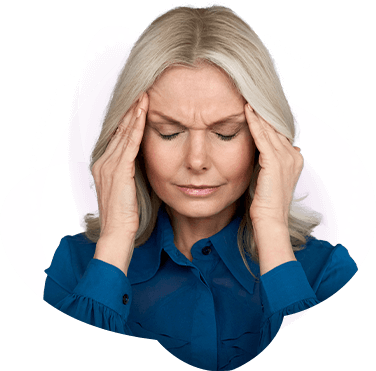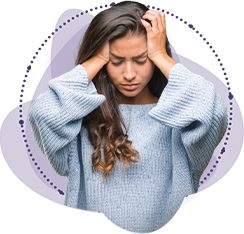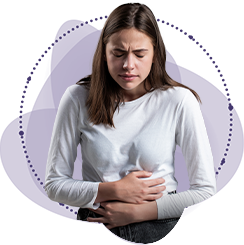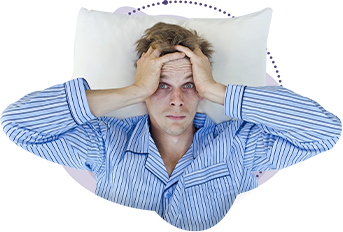
Symptoms
Anxiety symptoms significantly impair functioning in a number of areas, including:
- work functioning
- sociale functioning
- health
Which are the symptoms commonly associated with mild anxiety?

Restlessness
Restlessness is experienced as an inability too reimain at rest, difficulties concentrating, not being able to relax or being constantly uneasy.

Difficulty concentrating
Difficulty concentrating could lead to problems performing at work and might be perceived as distressing by individuals who are concerned about the possible potential negative consequences of being unable to complete an important task.

Palpitations
Palpitations are an increased or abnormal awareness of heartbeat
The perceived sensation can be that of a pounding feeling in the neck, a feeling of rapid fluttering or a flip-flopping in the chest.

Gastrointestinal problems
Mood and anxiety disorders can be associated with Gastro Oesophageal Reflux Disease (GORD) - related symptoms such as acid regurgitation and heartburn.

Bad mood
How many times have you been in a bad mood? Have you ever wondered what a "bad mood" really means and what specific characteristics this emotional state has? First of all, we need to define what "mood" is.

Worries
Worry helps us to develop strategies to avoid negative outcomes if the event cannot be avoided altogether.
Worry is abnormal if it is excessively distressing or persistent.

Disturbed sleep
Disturbed sleep is among the most common symptoms in patients with anxiety disorders and has detrimental effects on patients’ daily living skills and quality of life.
Each affiliates to add a disclaimer
(each affiliates to add a disclaimer about carefully reading the patient leaflet and the prescription and regulatory laws concerning Laila in their own Country)
Each affiliates to add a disclaimer
(each affiliates to add a disclaimer about carefully reading the patient leaflet and the prescription and regulatory laws concerning Laila in their own Country)
